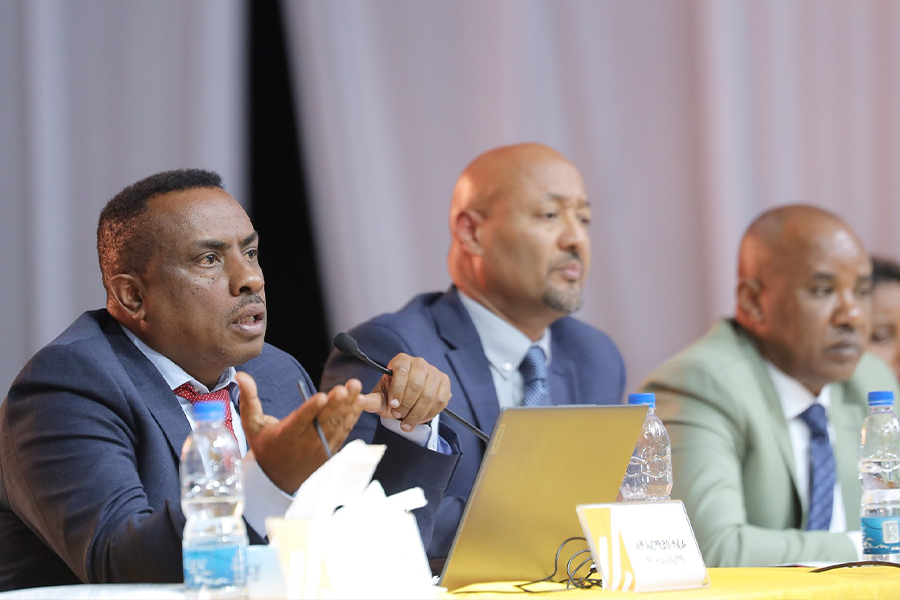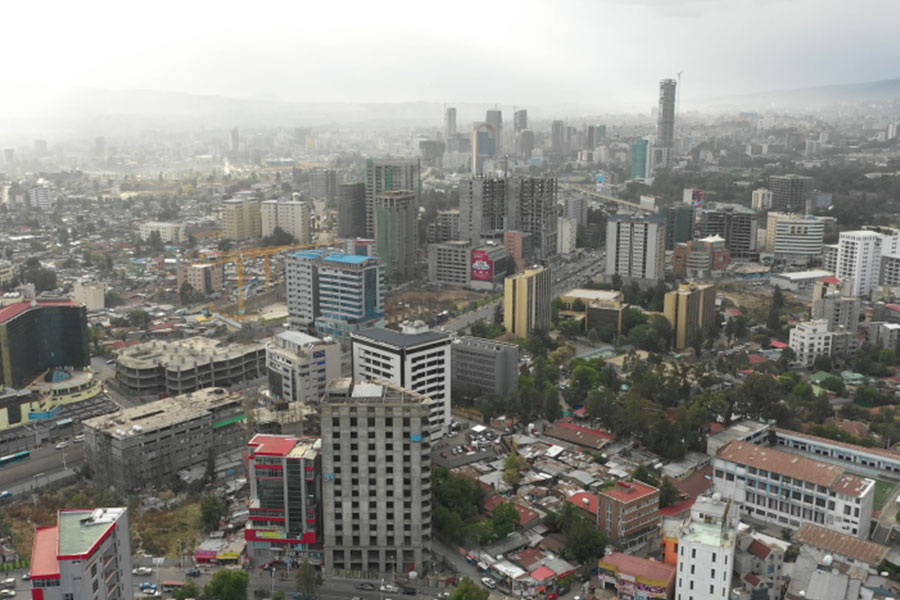
Jan 26 , 2019
By Belay Abera
Social problems continue to be one of the chief challenges in the world, including Ethiopia, only changing its face and texture from time to time. High rates of substance abuse, with just about half of Ethiopian adults suffering, the tensions with the family fabric and increasing rates of delinquency are some of the common social problems that are widely seen.
Such problems have not gained enough attention despite their graveness, perhaps because it is not an economic or political problem that can be fixed by the implementation of new policies. It is as well not a walk in the park to take stock of the cause of the full scale of the problem and present alternatives to address them without affecting economic and political situations.
Unfortunately, it is also not easy for us to agree on what can constitute a social problem. For the most part, it is merely a condition that people in a community view as being undesirable. Some are easier to gauge out, such as the Opioid epidemic in the United States.
Other social problems may not be viewed as such by certain groups of people. Teenagers who play loud music in a public park do not see it as a problem, but other people may consider it an undesirable social behaviour. Similarly, non-smokers may view smoking as an undesirable social condition that should be banned or restricted in public buildings. Typically, social issues result from factors beyond an individual's control and can disproportionately affect people who share characteristics such as race, religion, economic status or geographic location.
It is the media that usually sets the tone on how we look at social issues. It can be racism, unemployment, crime, violence, drug abuse and environmental problems, most of them found at the local, regional, national and international levels. Some of these problems often get more attention than others, mostly depending on the cultural and religious norms and popular opinion within society just as much as the seriousness of the issue.
For an issue to be considered a social problem, a segment of the population should agree that the condition is counterproductive. For instance, some people favour a ban on smoking in public, but others oppose a total ban on smoking. The same goes for the right to bear arms, which some consider to be a nuisance that opens the floodgates to lawlessness while others violently disagree.
Given that whether or not social issues will be addressed largely rests on the opinions of the public, it is minorities or groups left out of political participation that pay the higher price. This gives way to political movements that have substantially affected the political and economic organisation of a nation. It is crucial to note that many political and economic issues have a social basis. For instance, a cigarette smoker becomes a victim of lung cancer, which in itself translates a public health issue.
Of the great many social problems that we face, that of the youth should be most worrying as it would come to inform their worldviews in the future. Since social issues have more to do with the attitude society has towards them than their pervasiveness, it is crucial that young people come of age satisfactorily informed of what the logical steps that should be taken are.
The young generation is growing up in an environment with easy access to information that can be easily misconstrued or misleads people. Substances that can be abused are only growing, and there is an abundance of opportunities to be lost in a virtual world that offers no means to get acquainted with opposing ideas.
If these problems are not addressed, society will become unsafe for the individual, not to mention minorities, and negatively influence the lives of future generations. It would require a societal reform to address these problems, which must start from an assertion of culpability. It also needs responsible institutions that are dedicated to protecting the few from some of the negative inclinations of the majority.
PUBLISHED ON
Jan 26,2019 [ VOL
19 , NO
978]


Viewpoints | Aug 06,2022

My Opinion | Dec 04,2020

Sunday with Eden | Dec 11,2021

Verbatim | Oct 20,2024

Radar | Oct 10,2020

Radar | Aug 03,2019

My Opinion | Jan 03,2021

Radar | Nov 07,2020

View From Arada | Sep 11,2020

Commentaries | Sep 19,2020

Photo Gallery | 177977 Views | May 06,2019

Photo Gallery | 168186 Views | Apr 26,2019

Photo Gallery | 158926 Views | Oct 06,2021

My Opinion | 137034 Views | Aug 14,2021
Commentaries | Oct 25,2025

Dec 22 , 2024 . By TIZITA SHEWAFERAW
Charged with transforming colossal state-owned enterprises into modern and competitiv...

Aug 18 , 2024 . By AKSAH ITALO
Although predictable Yonas Zerihun's job in the ride-hailing service is not immune to...

Jul 28 , 2024 . By TIZITA SHEWAFERAW
Unhabitual, perhaps too many, Samuel Gebreyohannes, 38, used to occasionally enjoy a couple of beers at breakfast. However, he recently swit...

Jul 13 , 2024 . By AKSAH ITALO
Investors who rely on tractors, trucks, and field vehicles for commuting, transporting commodities, and f...

Oct 25 , 2025
The regulatory machinery is on overdrive. In only two years, no fewer than 35 new pro...

Oct 18 , 2025
The political establishment, notably the ruling party and its top brass, has become p...

Oct 11 , 2025
Ladislas Farago, a roving Associated Press (AP) correspondent, arrived in Ethiopia in...

Oct 4 , 2025
Eyob Tekalegn (PhD) had been in the Governor's chair for only weeks when, on Septembe...

Oct 25 , 2025 . By YITBAREK GETACHEW
Officials of the Addis Abeba's Education Bureau have embarked on an ambitious experim...

Oct 26 , 2025 . By YITBAREK GETACHEW
The federal government is making a landmark shift in its investment incentive regime...

Oct 27 , 2025
The National Bank of Ethiopia (NBE) is preparing to issue a directive that will funda...

Oct 26 , 2025 . By SURAFEL MULUGETA
A community of booksellers shadowing the Ethiopian National Theatre has been jolted b...